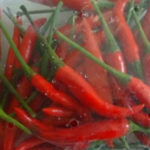1 How long can cooked food be left out?
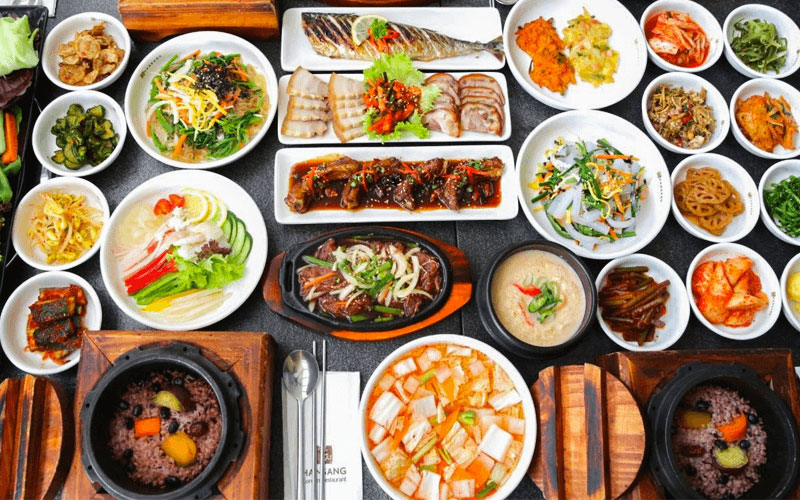 Cooked food can be left out for 2 hours
Cooked food can be left out for 2 hours
According to the Food Safety Agency, cooked food is only safe for up to 2 hours after cooking, and temperatures between 4-60 degrees Celsius increase the risk of spoilage. Even though the food has been cooked, improper storage can still allow bacteria to grow and pose health risks.
Even with sterilized and tightly sealed packaged foods, opening the package allows bacteria and mold from the air to enter and contaminate the food, which can be harmful to consumers.
More references: always fresh, safe
2 Tips for safely storing cooked food
Not everyone is aware of the proper methods for storing food in the refrigerator. By implementing the following storage techniques, you can ensure the health and well-being of your family members.
Classify food
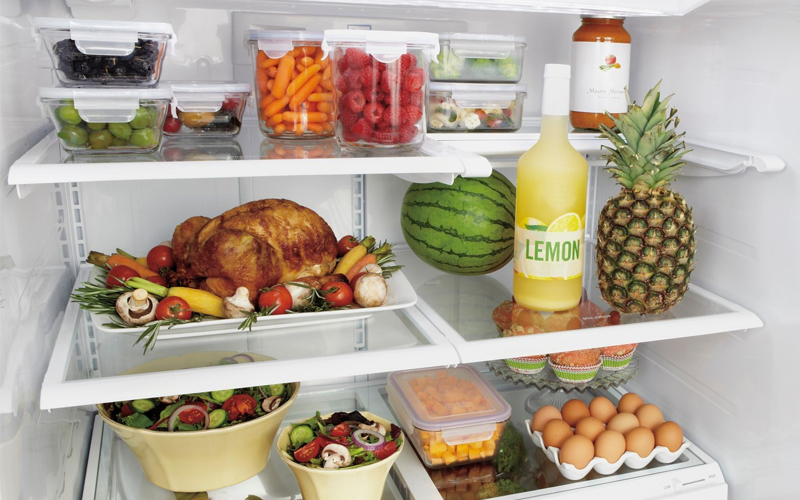 Classify food
Classify food
Simply putting all your food in the refrigerator is not enough. It is essential to organize and classify your food properly. Separate cooked food from raw food to avoid contamination.
Raw meat and vegetables should be stored in the bottom drawer of the refrigerator. The top shelf of the cooling compartment is suitable for storing cooked food. Additionally, it’s advisable to store pungent foods like jackfruit or durian separately in a container to prevent odor contamination.
Wrap food tightly and package carefully
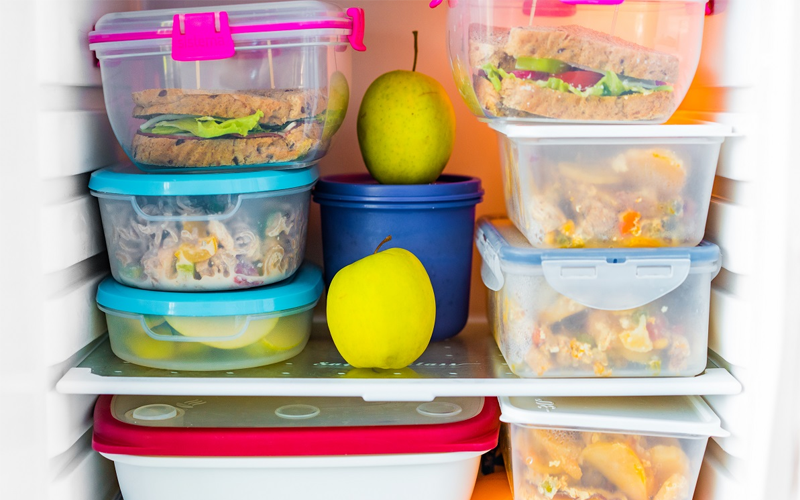 Wrap food tightly, package carefully
Wrap food tightly, package carefully
For cooked dishes that need to be stored for an extended period, it’s best to wrap them with plastic wrap, aluminum foil, or place them in vacuum-sealer bags or containers.
These packaging methods help to prevent bacteria from entering the food and also prevent the spread of odors throughout the refrigerator.
Cook food immediately after thawing
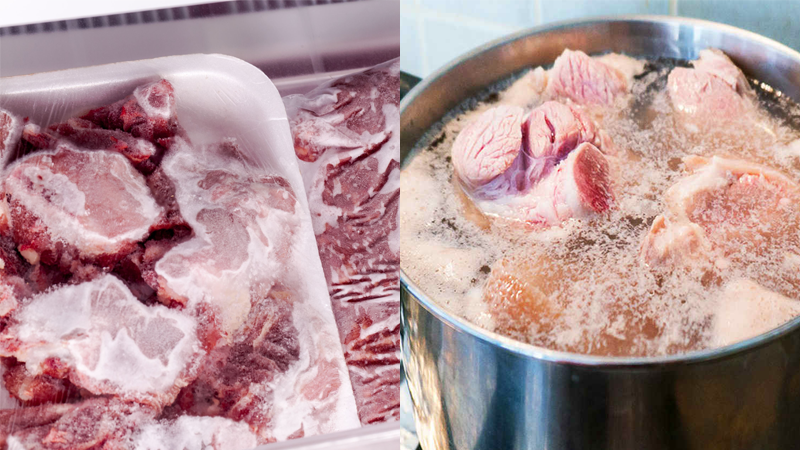 Cook food immediately after thawing
Cook food immediately after thawing
When buying meats or fish and storing them in the refrigerator for later use, it is advisable to cook them immediately after thawing. This helps to keep the meat fresh and avoids leaving it in the refrigerator for too long.
It’s recommended to store raw meat, fish, and poultry in the freezer compartment of the refrigerator. Portioning the food for each meal eliminates the need to refreeze or store excessive leftovers.
Let cooked food cool before refrigeration
 Let cooked food cool before putting it in the refrigerator
Let cooked food cool before putting it in the refrigerator
Many individuals overlook the importance of letting cooked food cool before refrigeration. It is crucial to allow food to completely cool down before placing it in the refrigerator. Putting hot food in the refrigerator can cause it to spoil quickly and alter its taste.
Additionally, hot food evaporates and becomes stagnant, providing an ideal environment for bacteria to grow, which can be harmful to consumers’ health.
Monitor the storage time of food in the refrigerator
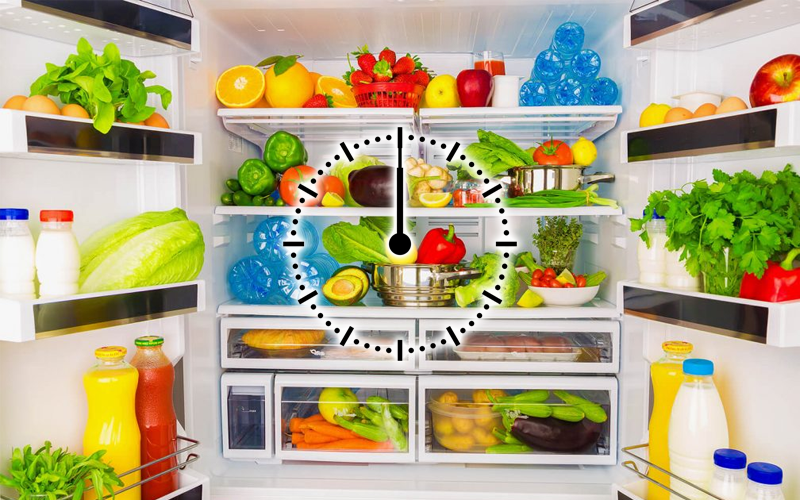 Pay attention to the storage time of food in the refrigerator
Pay attention to the storage time of food in the refrigerator
The storage time for cooked food in the refrigerator varies depending on the type of food. It is important to regularly check both the refrigerator and the contents stored within.
Generally, highly perishable fruits and vegetables, particularly green leafy ones, should be consumed within a few hours and not stored for more than 12 hours or overnight. Storing them for an extended period can lead to deterioration and pose health risks.
As for freezer-stored food, it shouldn’t be kept for excessively long periods, as the freshness, taste, and quality may deteriorate over time.
Adjust the refrigerator temperature appropriately
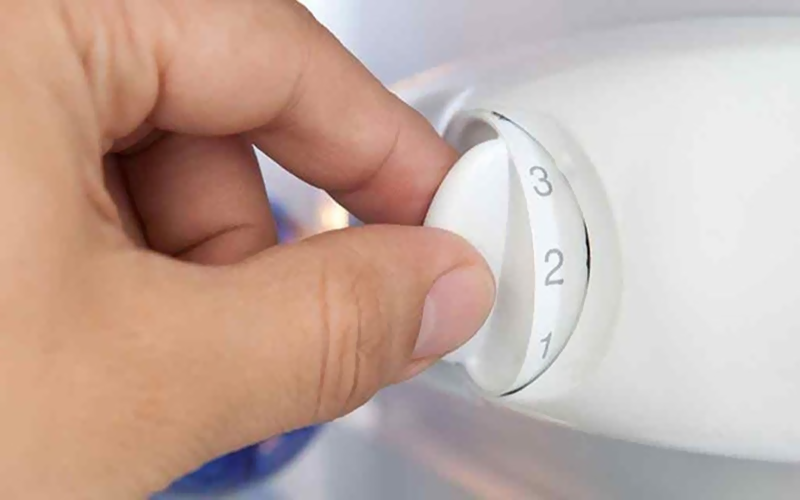 Adjust the refrigerator temperature properly
Adjust the refrigerator temperature properly
Extremely high or low temperatures in the refrigerator can negatively impact food safety. Bacteria can survive at temperatures above 4 degrees Celsius, and the refrigerator only inhibits their growth but doesn’t eliminate them. Therefore, it’s important to set and maintain appropriate temperature levels to inhibit bacterial growth.
To store cooked food, set the refrigerator temperature to around 1.7 to -5 degrees Celsius in the fresh food compartment and -18 degrees Celsius in the freezer compartment.
3 Storage duration for food in the refrigerator
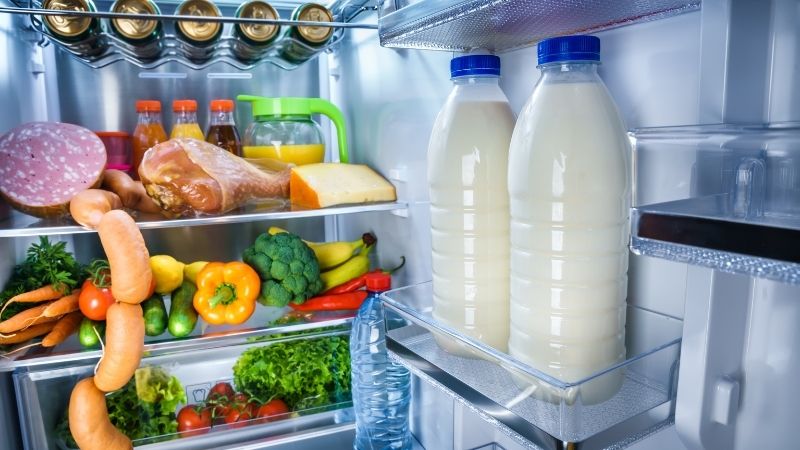 Storage time for food in the refrigerator
Storage time for food in the refrigerator
Raw meats: It is advisable to store raw meats in the freezer, tightly sealed. Meats such as pork, beef, and chicken can be stored in the freezer for up to 4 months or 1 year. If already cooked, it is recommended to only store them for 1 – 2 days.
Fruits and vegetables: Berries can be stored for approximately 3 months, while other fruits and vegetables have shorter storage times. Consider placing them in bags or airtight containers.
Seafood: Similar to meats, seafood should be tightly wrapped to prevent spoilage and odors. Shellfish can be stored in the freezer for 2 – 3 months, fresh fish for a maximum of 5 months, and cooked seafood for 2 – 3 months.
We hope that the above food storage methods will be helpful to you. When dealing with leftover food, it’s crucial to store it properly, ensuring hygiene and avoiding any harm to your health!
You may also like
Ten Strategies to Streamline Your Cooking Process
Are you a busy housewife looking for ways to save time in the kitchen? Did you know that flossing can also help you out? Check out these 10 tips to help you quickly and easily prepare delicious meals for your family. Learn how to peel garlic in 10 seconds and cut cherry tomatoes quickly for a healthy and tasty meal.
4 Strategies for Storing Chili for One Month
Do you want to enjoy the fresh, spicy flavor of chili peppers all month long? Look no further! This article provides tips and tricks for storing chili peppers so that they stay fresh and flavorful for up to a month. Learn how to best preserve your peppers and savor their zesty taste for weeks to come.
Discover the Quickest Way to Clean Your Fridge for Tet in Under 20 Minutes
As we approach Tet, preparations for the New Year can seem endless. From cleaning the house to sorting through cabinets, it can be a taxing process. But perhaps the most dreaded New Year chore is refrigerators. No need to fret, though – with these helpful tips, you’ll have a clean fridge in no time – just 20 minutes!



























